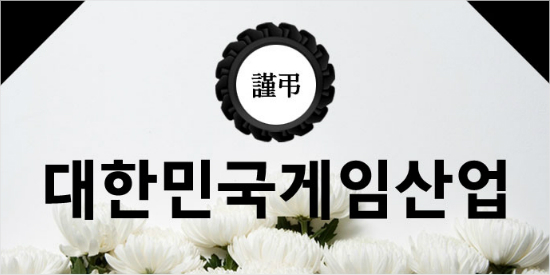Should games be regulated? Absolutely. If playing games is considered a valid cultural activity just as listening to music or watching movies, regulating them would be no different from movies being rated a certain alphabet-number combination or lyrics of certain songs being replaced with a less profane alternative. So the more important question is, to what extent should games be regulated? That would depend on how games are viewed.
Take the US, for example. Games have been legally declared as a form of art, and a self-regulatory organization, the Entertainment Software Rating Board (ESRB), regulates games and determines their proper rating. And that’s about it for game regulation in the States. Then there is Korea. While some accept games as a reasonable form of leisure or outlet of stress, many others view it as an evil. Some politicians have publicly taken a negative stance against games, regarding game addiction to be as detrimental to the human being as drugs, alcohol, or gambling. Let’s take a look at some of the policies that are in effect, or that could have been gone into effect concerning gaming regulation, and how they affect or may have affected the Korean gaming culture and industry.
Currently, all online games in Korea are required by law to forbid gameplay access to players under the age of 16 from midnight to 6 a.m. the morning after. Called the Shutdown Law, this law has been in effect since November of 2011. Supporters of the law justify it by claiming that too many teenagers have been deprived of their sleeping rights due to overnight gaming and claim this is a reasonable way to guarantee them some sleep. But as history teaches us, moonshining was not discouraged just because alcohol was declared illegal during the Prohibition; if anything, it prospered. There are quite a few holes in this law, some of which gamers and developers alike exploited. According to a congressman-led report back in 2012, around 40% of teenagers either used their parents’ resident registration number without their consent or illegally found and used one floating around the web in order to beat the system. In the same report, more game developers started to develop games dedicated to an adult audience so that they could simply avoid the Shutdown Law applied to their game. Other holes include the fact that the law blindly avoids non-online games — as if those games don’t deprive teenagers of sleep — and doesn’t care about games from overseas; apparently, only Korean online games are under scrutiny after midnight. This just shows how uninformed some of the politicians are about games and how they function.

Some other laws that were put into motion but fortunately did not pass include a “cooling off” legislature where games automatically shut down after two hours for teenagers, considered a solution to school violence; the so-called “Addiction Law” where, as mentioned beforehand, games would have been held as equal to heroin, vodka, and poker; a more harsh version of the Shutdown Law that increases both the age limit and length of the shutdown period, while requiring a new addiction index system for all games and new patches forthcoming; you get the vibe. If any one of these policies went through the proper legislative process to the end, it would have spelt disaster for the Korean gaming industry. More and more scrutiny for developing a game, publishing it, and continuing to service it may have led to more and more developers, especially smaller ones, to simply give up making games in Korea, or worse, being sold to foreign companies. The latter has been happening at an alarming rate the last few years, especially to Chinese capital.
According to a brief by the Korean Economic Research Institute from this year, multiple indexes show that the Korean gaming market and exports are either at a slight standstill or even declining, thanks to current regulations. While game regulation was originally planned to be done by an industry-led, autonomous body similar to the American ESRB, it was switched to a more government-led, controlled regulatory fashion after gaming became a serious social issue in Korea around the beginning of the 21st century. This in turn led to many of the policies that are in effect or may be in effect focus only on the side effects of games, but not the core problems concerning them. The brief provides ways on the least that needs to happen for the Korean gaming industry to continue to have a foothold in the world market: current regulations must be repealed, and how games are currently unfairly viewed by the public and politicians must change. Without change, the gaming industry that is responsible for more than half of exports for Korea’s content-related industry will plummet. This is the undeniable harsh truth.

